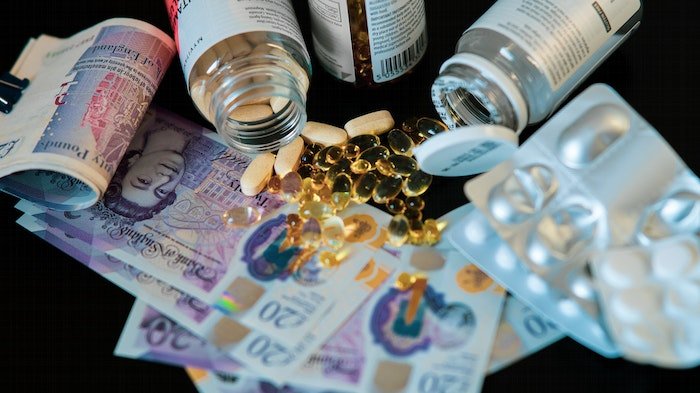Drug and Alcohol Rehab in Swale
Alcohol and drug addiction are known as Substance Use Disorders (SUD) which is defined as a mental disorder which causes the inability of a person to control their use of legal or illegal substances. [1]
Substance use disorder affects around 35 million people around the world, with about 0.5 million deaths annually attributed to drug use. [2]
Due to the nature of an addiction, or a substance use disorder, it can be very difficult for a person to stop taking the addictive substance even if it is having a negative impact on their life.
That’s why drug and alcohol rehab is so essential in helping people recover from addiction.
If you or someone you know is struggling with their addiction, then find out more below about drug and alcohol rehab in Swale and how you can get professional support in getting sober and overcoming your addiction.
Start your recovery journey today by calling our expert team to access drug & alcohol rehab in Swale on 0800 088 66 86
How Does Drug and Alcohol Rehab in Swale Work?

Knowing what you can expect in drug and alcohol rehab can help addiction treatment seem a lot less daunting, and also help you to prepare to start your recovery journey.
When you reach out for addiction treatment, you will be given an initial assessment to discuss your needs and a treatment plan will be put together with you so you can begin to get help.
This plan will normally consist of a detox period, followed by a course of addiction therapy and concluding with relapse prevention and aftercare services.
Treatment plans will vary depending on a number of factors from funding to the severity of addiction, however, the general overview of an inpatient rehab stay will look like this:
- 7-10 day detox
- 3 weeks of addiction treatments and therapies
- Relapse prevention plan and aftercare information
If you are undergoing outpatient rehab then the structure might vary, but most treatment plans will consist of detox, psychological treatments and then aftercare.
What Is a Medical Detox?

A drug detox or alcohol detox is the first stage in addiction treatment and is when a person stops taking the addictive substance. During this time, the person may experience mild to severe withdrawal symptoms.
Although a detox rids the body of the substance and helps the person recover from the effect of the alcohol or drug, it can also be a dangerous time as the body and mind adjust to being without the substance.
For physically addictive substances such as heroin and alcohol, the detox often needs to be done on an inpatient basis and/or accompanied by medication. A medically assisted detox is known as a medical detox, and medication such as Librium is often used.
This is due to the potential severity of the withdrawal symptoms, for example, delirium tremens (DTs) which can affect people going through alcohol withdrawal and can be fatal.
An at-home detox can be done for substances with less dangerous withdrawal symptoms, for patients who are not as severely addicted and/or for those who have a strong home support system.
The detox period lasts 7-10 days, during which time the withdrawal symptoms are likely to be their most severe and treatment consists of managing withdrawals, administering medication and ensuring the patient’s safety.
Start your recovery journey today by calling our expert team to access drug & alcohol rehab in Swale on 0800 088 66 86
Addiction Treatment and Therapies Available in Swale

Following your detox, you will then go through addiction treatments and therapies to treat the psychological, social and behavioural aspects of your addiction.
Some of the treatments with the highest success rates which are often used in addiction rehab include:
- Dialectical Behavioural Therapy
- Cognitive Behavioural Therapy
- Contingency Management
- Addiction Counselling
- Holistic Therapies (e.g. art therapy, music therapy or equine therapy)
- Mindfulness
- Motivational Enhancement Therapy
You can find out more about each of these therapies by clicking on their names above.
The methods they use include one-to-one discussion, group discussion, teaching methods to challenge addictive thought processes, working out the reasons behind addictions and focusing on the motivation to stop the addictive behaviours.
There is a wide range of addiction treatments that you might undergo when you enter into treatment, and which treatment/s you do will be put into your personalised treatment plan.
If you have a co-occurring disorder (e.g. you have drug/alcohol addiction as well as depression) then you might be given medication and/or another form of treatment for this disorder too.
Longer-lasting withdrawal symptoms may also be managed with medication after the detox period has ended to help with the severity of these symptoms as well as lessen cravings.
How Much Does Drug and Alcohol Rehab in Swale Cost?

The cost of drug and alcohol rehab in Swale depends on how your treatment is funded and what type of treatment you have.
The NHS provides free addiction treatment for all UK residents, including therapies, detox programmes and other services to help patients recover from drug and alcohol addiction.
Private rehab is also available in Swale and costs an average of £495 per day and for a full course of inpatient treatment the average cost is £14,000.
Prices for private rehab vary depending on where you go, what treatments you have, how long you stay and what facilities you use. You may also be able to cover the cost of private rehab via your health insurance.
Is NHS or Private Drug and Alcohol Rehab Better?

The cost of treatment is not the only difference between NHS and private rehab, so before making your decision you should be aware of the key differences so you can make the right decision for your recovery.
NHS Drug and Alcohol Rehab in Swale
- Cost: Free
- Waiting List: Often 3 weeks – 6 months, sometimes up to 1 year.
- Treatment options: Restricted, mostly outpatient with less variety of treatments.
- Additional services: Limited, inpatient treatment includes basic use of residential rehab.
Private Drug and Alcohol Rehab in Swale
- Cost: Average of £14,000 overall for a 28-day inpatient course of treatment.
- Waiting List: Most rehab centres admit patients within 24-48 hours.
- Treatment options: Often a larger variety of treatments such as holistic therapies.
- Additional services: Use of facilities such as swimming pools and gyms, as well as luxury dining packages, are often available.
Whether you choose private rehab for the shorter waiting times or NHS rehab for the free treatment, you can rest assured that you will get the help you need.
You can also access free drug and alcohol rehab in Swale through local charities and the Kent county council outpatient rehab team. [3]
NHS and private rehab both offer professional addiction treatments conducted by trained addiction specialists who have experience helping those struggling with addictions.
How Long Does Drug and Alcohol Rehab in Swale Last?

The length of time you spend in rehab will depend on what kind of rehab you have, what treatments you have and your own personal circumstances.
Inpatient Drug and Alcohol Rehab in Swale
Inpatient treatment refers to the treatment carried out whilst the patient stays in the rehab centre during the day and night.
1 course of inpatient treatment usually lasts 28 days, as this is the recommended time within which someone can go through the detox and psychological therapies needed to help overcome their addiction.
Within this 28-day period, there is a 7-10 day detox and 3 weeks of addiction treatments such as therapy and addiction counselling.
Outpatient Addiction Treatment
Outpatient treatment refers to the treatment carried out whilst the patient remains at home and only comes into the rehab centre for their treatment.
This usually lasts around 4 weeks to 2 months, however, it depends on how regularly the patient has sessions and what treatments they undergo.
There are also different degrees of intensity for outpatient programmes, including past hospitalisation where a patient will enter residential rehab for a detox before then undergoing outpatient treatment.
Start your recovery journey today by calling our expert team to access drug & alcohol rehab in Swale on 0800 088 66 86
Aftercare: What Happens When Rehab is Over?
After you complete your addiction treatment, you will create a relapse prevention plan alongside your addiction specialist complete with aftercare documentation.
The relapse prevention plan includes methods to help reduce the risk of relapse, help with cravings and contact details for aftercare support services.
These aftercare services are in place so you can get in touch if you are struggling with relapse, in need of extra help or just want to find a support network of others going through recovery.
Some of the most commonly used free aftercare services include Alcoholics Anonymous, Narcotics Anonymous, SMART Recovery and Al-Anon/Nar Anon.
If you want to take charge of your addiction recovery, get in touch with the Rehab Recovery team today and start your life free from the cycle of addiction.
Start your recovery journey today by calling our expert team to access drug & alcohol rehab in Swale on 0800 088 66 86
References
[1] National Institute of Mental Health (2021) Substance Use and Co-Occurring Mental Disorders, https://www.nimh.nih.gov/health/topics/substance-use-and-mental-health#:~:text=A%20substance%20use%20disorder%20
[2] World Health Organisation, Drugs (psychoactive), https://www.who.int/health-topics/drugs-psychoactive#tab=tab_2
[3] Kent County Council, Alcohol and Drug Support, https://www.kent.gov.uk/social-care-and-health/health/drug-misuse/alcohol-and-drug-support#tab-1


